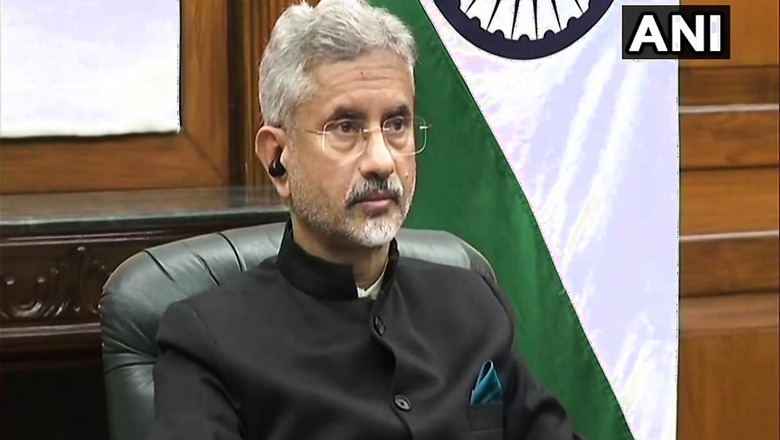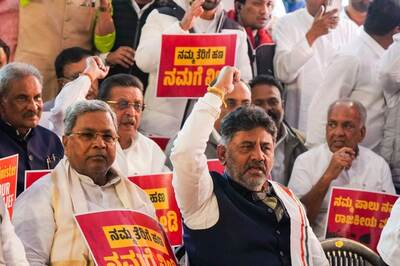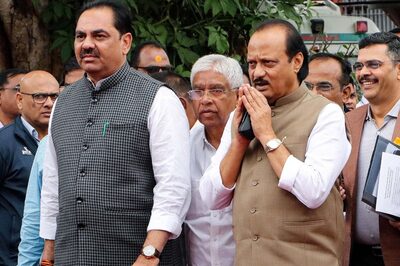
views
Foreign Minister S Jaishankar on Tuesday slammed countries aiding and abetting terrorism and providing terrorists financial assistance and safe havens, in an indirect swipe at Pakistan. India asserted that the international community must not allow terrorism to be justified and terrorists glorified as it told the UN Security Council that the crime syndicate responsible for the 1993 Mumbai bomb blasts is given not just state protection but is enjoying five-star hospitality, a thinly-veiled reference to the D-company head Dawood Ibrahim believed to be hiding in Pakistan.
Jaishankar was speaking at a United Nations Security Council (UNSC) open debate, which centred on the topic “International cooperation in combating terrorism 20 years after the adoption of resolution 1373”. This was the first time the foreign minister made an intervention at the UNSC after India assumed membership on January 1.
Jaishankar proposed an eight-point Action Plan for the UN system to credibly address the menace of terrorism and ensure effective action. He asserted that linkages between terrorism and transnational organised crime must be fully recognised and addressed vigorously. He is the senior-most Indian leader to address the UNSC since India joined the powerful 15-member UN body as a non-permanent member this month for a two-year tenure.
“Some states lack legal and operational frameworks and technical expertise to detect, investigate and prosecute terrorist financing cases. However, there are other states that are guilty of aiding and supporting terrorism and provide financial assistance and safe havens,” said Jaishankar.
“We must summon political will to combat terrorism. There must be no ifs and buts in the fight. Nor should we allow terrorism to be justified and terrorists glorified. All members must fulfill the obligations enshrined in international counter-terrorism instruments,” he said.
Referring to Dawood Ibrahim, in hiding in Pakistan, Jaishankar said: “We have seen crime syndicate responsible for 1993 Mumbai blasts not just given state protection but enjoying five-star hospitality.” Last August, Pakistan had for the first time acknowledged the presence of Ibrahim on its soil after the government imposed sweeping sanctions on 88 banned terror groups and their leaders which also included the name of the underworld don wanted by India.
Jaishankar said nations must not tolerate “double standards” in this battle. “Terrorists are terrorists; there are no good and bad ones. Those who propagate this distinction have an agenda and those who cover up for them are just as culpable,” he said.
“Enlisting and delisting individuals and entities under the UN sanctions regimes must be done objectively, not for political or religious considerations. Proposals in this regard merit due examination before circulation,” he added.
“The COVID-19 pandemic has only aggravated the situation further. The relative isolation and extended disruption due to the lockdowns and the associated distress and economic uncertainty has made the world more susceptible to radicalizing narratives and extremist propaganda,” said the minister.
“In recent years, terrorist groups and lone wolf attackers have enhanced their capabilities by gaining access to emerging technologies, including drones, virtual currencies and encrypted communications. Social media networks have contributed to radicalization and recruitment of youth,” he added.
In a strongly-worded statement, Jaishankar said combating terrorist financing will only be as effective as the weakest jurisdiction. The Financial Action Task Force (FATF) should continue to identify and remedy weaknesses in anti-money laundering and counter-terror financing frameworks. He also added that enlisting and delisting individuals and entities under the UN sanctions regimes must be done objectively, not for political or religious considerations.
Read all the Latest News, Breaking News and Coronavirus News here



















Comments
0 comment